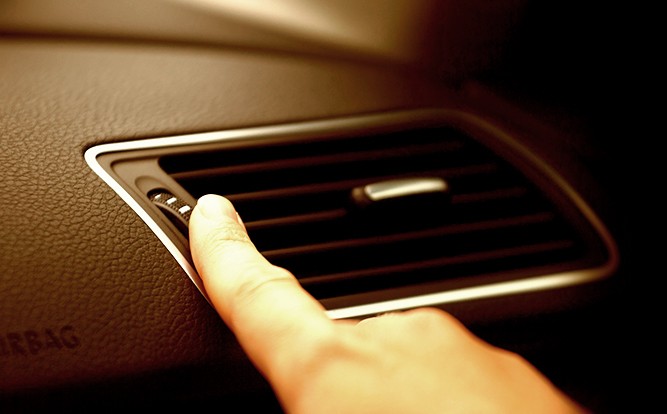Keep your cool

You’ve been waiting for the warm temperatures that summer brings and while you might love to bask in the sun, your car’s engine doesn’t appreciate the heat. Excessive heat can cause your engine to overheat, halting those vacation plans and landing your vehicle in the repair shop with an expensive repair.
Don’t wait for the temperature warning light to come on. Read on to learn what can cause your engine to overheat, what to do if it happens to you, and what steps you can take to ensure that your engine keeps its cool all summer long.
Engine Overheating explained
All mechanical engines have an optimal temperature range where it performs its best. If the engine temperature hits the extreme of too hot – it can lead to problems. If your engine temperature rises above the optimum level, it can overheat which can damage engine components.
What Causes a car to overheat?

While driving in hot weather is a factor in engine overheating, it’s not the only factor. Low coolant level or a cooling system leak are other reasons that your car engine can overheat. You may also be experiencing a failing water pump or thermostat.
Whatever the cause, it is imperative that you find the source of the overheating and get it fixed. The first symptoms you are likely to notice are either steam coming out from under the hood or your temperature gauge steadily climbing from its normal level. If this happens to you while you are driving, it is important to know what steps you should take.
How to handle Car engine overheating
If you are driving and your engine begins to overheat, take the following steps:
Turn off the air conditioning
This reduces the strain on your engine and can help it get regulated.
Crank the heater and fan up to full blast
This sounds counterintuitive but doing this transfers the heat away from your engine, giving it a chance to breathe.
Top off the coolant cooling system with antifreeze or water
Many times this will cool things off so you can get to your destination. Keep in mind this could be a temporary fix, so keep an eye on your engine. Note: Because it contains hot water under pressure, be careful when removing the radiator cap. Allow some time for things to cool off before removing the radiator cap and use a rag over the cap to prevent steam burns.
Rev it up
If you’re sitting in traffic or at a stoplight, put the car in park or neutral and bring the engine up to 1500RPM to get air and water moving through the radiator. In addition, keep the heat down by staying off the brake pedal when in traffic to keep air flowing through the radiator.
Pull over
If the temperature gauge continues to rise, it’s time to pull over and call a tow truck to avoid further damage to your engine. Pop the hood from inside the car and let the engine cool for at least 30 minutes before touching anything. Have your vehicle towed to your mechanic for repairs.
Dangers of driving with an overheated engine
If your engine doesn’t cool off, it is crucial that you stop driving and get your vehicle towed to your mechanic for repairs. Continuing to drive with an overheated engine can have dire consequences. You risk a costly head gasket repair or even a seized motor.
Preventing problems
As the old saying goes, prevention really is the best medicine. To avoid being stranded on the side of the road, take steps to prevent your engine from overheating.
Be prepared
As part of your emergency road kit, be sure to carry coolant and distilled water or pre-mixed coolant for your vehicle.
Check coolant level
Get in the habit of checking your coolant/antifreeze level on a regular basis. Consult your owner’s manual to ensure you’re using the right mixture of antifreeze and water.
Watch your temperature gauge
While driving, keep an eye on your temperature gauge. If it begins to creep up, you’ll be in the right position to employ the steps outlined above to get your engine cooled off.
Get leaks fixed
If you notice any antifreeze leaks, have your mechanic diagnose and fix the source of the problems right away.
Learn more about Fel-Pro quality gaskets that are specifically designed for the repair environment, find your car part, or find where to buy your auto part today.
The content contained in this article is for informational purposes only and should not be used in lieu of seeking professional advice from a certified technician or mechanic. We encourage you to consult with a certified technician or mechanic if you have specific questions or concerns relating to any of the topics covered herein. Under no circumstances will we be liable for any loss or damage caused by your reliance on any content.
Other Parts For Your Vehicle
Fel-Pro® offers a wide variety of auto parts for all your vehicle needs.
Check them out today!